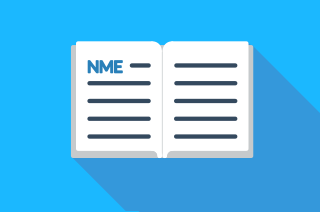By Iacob Gammeltoft
As colleagues from the Financial Times and the Oxford Reuters Institute have pointed out, this is an extraordinary time for journalism. It is in times of crisis like the one we live in, that journalism can shine at its best and that its true value can be transparently observed.
In this blogpost, I highlight some thoughts on what the advent of COVID-19 means for journalism in Europe. I consider this from several perspectives: the value of journalism, the impact of the virus on industry finances, and the policy expectations of European news media.
The value of journalism: one coin with two sides
At this time of major disruption, news outlets of all types have united behind the COVID-19 crisis to deliver meaningful and reliable journalism to citizens. Such content provides not only continuity to public life, but also much needed information on the ongoing pandemic, with many European outlets registering doubled traffic volumes in recent weeks.
Many media houses have responded by ensuring the continuity of news coverage, of the print and distribution supply-chain, and setting-up dedicated teams to work on COVID-19 to fulfill the vital information needs of citizens. All of this requires tremendous coordination efforts with authorities and healthcare professionals.
Many have also chosen to lift their paywalls on content relating to COVID-19 while others have made a conscious decision not to follow that approach. This inevitably sparked criticism. Regardless of what side of the argument one might stand on, it should be agreeable that this debate in itself puts the spotlight on the value of journalism, both in terms of its contribution to social welfare and of the cost that is associated with producing it.
When people argue that journalism should be openly accessible to all, that is understandable. The epidemic creates a huge and natural information need in the population. The news media obviously has a key role in disseminating verified information, and in asking the right questions to authorities and politicians, ensuring that critical issues are uncovered.
However, making journalistic content freely accessible is not a decision for public authorities to take. Each editor must be able to make that decision on a free and independent basis. Media freedom also means freedom to choose how and where to publish content.
What the virus tells us about the lifeblood of the press
The COVID-19 crisis is paralysing economic activity at large and will exert an impact on markets. That will hurt the economy as a whole but also the media sector. Looking at the short-term, we already see concerning developments as key segments of the advertising market are basically crashing at an alarming rate.
Advertisement budgets related to most things in life, and which would under normal circumstances find their way to news publishers, are being withheld by marketeers, who see no point in spending at this point in time since the world outside people’s homes has basically come to a halt. Think of all the companies that advertise in tourism, catering, travel and culture, for example. For reference, when it comes to bigger European markets, we are talking in the hundreds of millions of Euros.
In many European countries, the coming months will likely witness a dramatic fall in advertising income for news publishers. Early estimates suggest the drop may range from 30% to 80% of industry-wide revenues depending on the country. Of course, different market players will be impacted differently, and smaller publishers will be hit hardest. Unless public authorities adopt targeted measures, we expect that many will have to close shop for good.
Media houses therefore now find themselves in a difficult situation since it is very clear that advertising revenues will fall across the board, while at the same time the cost of doing business will not only continue, but also increase due to additional measures needed to ensure the safety of journalists in the field and disruptions in the supply chain. The question therefore arises: what can public authorities do to help the media?
Views from the news media in Europe
The news media is preoccupied, and rightly so. Our own research at News Media Europe highlights a number of common threads and best practice in terms of what industry participants are telling policy makers at this time of need. Taking a more granular approach, the following are recurrent themes:
- Doing our job right: Give us the “essential” or “critical” status we need to continue carrying out reporting activities, and make sure that we have the right conditions to do so, ranging from mobility solutions to continued childcare.
- Max tax relief: Introduce, if not already done, a reduced VAT rate (or zero-rate) applicable both to both print and digital content. Postpone VAT and tax payments to relieve the burden on business cash flow where possible and consider exempting news organisations from certain taxes.
- Win-Win advertising solutions: You clearly need to carry out public health information campaign as a matter of urgency, and we have spare ad inventory to sell. How about we help each other and fight this pandemic together?
- It’s the economy, stupid: Many countries intend to make use of stat aid instruments as part of their response to the crisis. Do not overlook the media, understand that the media is massively affected, and note that the European Commission adopted emergency legislation to facilitate the rapid clearing of state aid.










